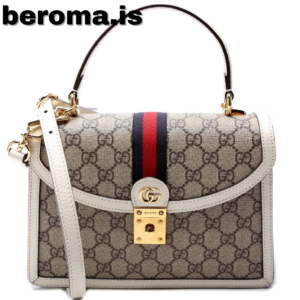 The allure of luxury fashion has always drawn a particular segment of society—those who appreciate craftsmanship, the prestige of owning a designer label, and the beauty of finely-made products. Yet, these hallmarks have often come at a substantial financial cost, which has led to an interesting dichotomy in the market. On one hand, there are those who are able to indulge in the latest handbags from the likes of Louis Vuitton, Chanel, and Hermes at full retail price, and on the other, a growing group of consumers who turn to the world of ‘super fakes’ for a more wallet-friendly path to high fashion.
The allure of luxury fashion has always drawn a particular segment of society—those who appreciate craftsmanship, the prestige of owning a designer label, and the beauty of finely-made products. Yet, these hallmarks have often come at a substantial financial cost, which has led to an interesting dichotomy in the market. On one hand, there are those who are able to indulge in the latest handbags from the likes of Louis Vuitton, Chanel, and Hermes at full retail price, and on the other, a growing group of consumers who turn to the world of ‘super fakes’ for a more wallet-friendly path to high fashion.
Understanding the Super Fake Phenomenon
Super fakes, also known as ‘AAA fakes,’ ‘1:1 quality,’ or ‘mirror image’ replicas, are meticulously crafted counterfeits that closely mimic the appearance and often the feel of authentic luxury merchandise. The UK, a hub for global fashion and commerce, has seen a notable surge in the availability and demand for these products. With an increasing emphasis on online retail, where the lines between genuine and fraudulent can be blurred, consumers are finding themselves encountering super fake bags more frequently than perhaps they would like to admit.
This isn’t purely a matter of taste or budget; it’s a trend that has palpable ethical and legal ramifications. It’s also about the sophistication of the replica industry, which has honed its craft to a point where even the most discerning customers can be hard-pressed to spot the difference.
The Ethics and Legality of Super Fakes
The purchase and use of super fake bags bring the consumer face to face with a myriad of ethical dilemmas. Affordability is often touted as a key factor in a consumer’s decision, but at what cost? These purchases often support illegal activities, including but not limited to intellectual property theft and funding for organized crime.
Additionally, from a legal standpoint, the sale and distribution of counterfeit items are serious offenses, with potential consequences for both the buyer and seller. UK intellectual property law is clear on the illegality of trademark infringement and the deception that counterfeit goods can cause in the marketplace. This raises the moral imperative not just for buyers to be aware of the origins of their goods, but for sellers to take responsibility in not propagating unlawful business practices.
Spotting the Super Fake in the Crowd
The minute details often give away the authenticity of a luxury item. Serial and model numbers, the quality of the material, the stitching, and even the chemical composition of the dyes and glues used in the manufacturing process can differ between a real and super fake bag.
Knowing what to look for is crucial, and for the aspiring luxury consumer looking to make their first (or next) high-end purchase, a vigilant eye can mean the difference between pride in owning a true luxury item and disappointment in realizing one has fallen prey to a clever counterfeit.
Impact on the Luxury Industry and Consumer Behavior
The prevalence of super fakes in the market presents a two-fold effect on the luxury industry. First, it can dampen the perceived exclusivity and value of genuine luxury items. Second, it can affect the bottom line of these brands, which invest heavily in the exclusivity and desirability of their products.
On the other side of the equation is the shift in consumer behavior. Some purchase super fakes as a trial run before investing in the real deal, while others may never make the leap to authentic purchases. Luxury brands must now cater to a consumer base that’s more likely to be price- and quality-aware, yet still desires the cachet that comes with their products.
Ethical Choices and Sustainable Alternatives
For those who seek ethical and sustainable routes into fashion, the dialogue now more than ever shifts to championing alternatives. From pre-owned luxury markets and upcycling to supporting brands with strong ethical and environmental credentials, the focus is on building wardrobes that align with personal values and with a commitment to a more transparent fashion industry.
The Call to Action
The rise of super fakes in the UK market is not merely an issue of luxury or affordability. It touches on our values and the kind of market and world we wish to support through our choices. As consumers, we have the power to shape the industry by choosing to consume ethically and responsibly.
It is essential to educate ourselves and others about the implications of counterfeit consumer goods, and to seek out genuine, sustainable alternatives. The call to action is to have these discussions, to remain informed, and to make choices that celebrate not just the aesthetic pleasure of fashion, but the integrity of the products we choose to invest in.